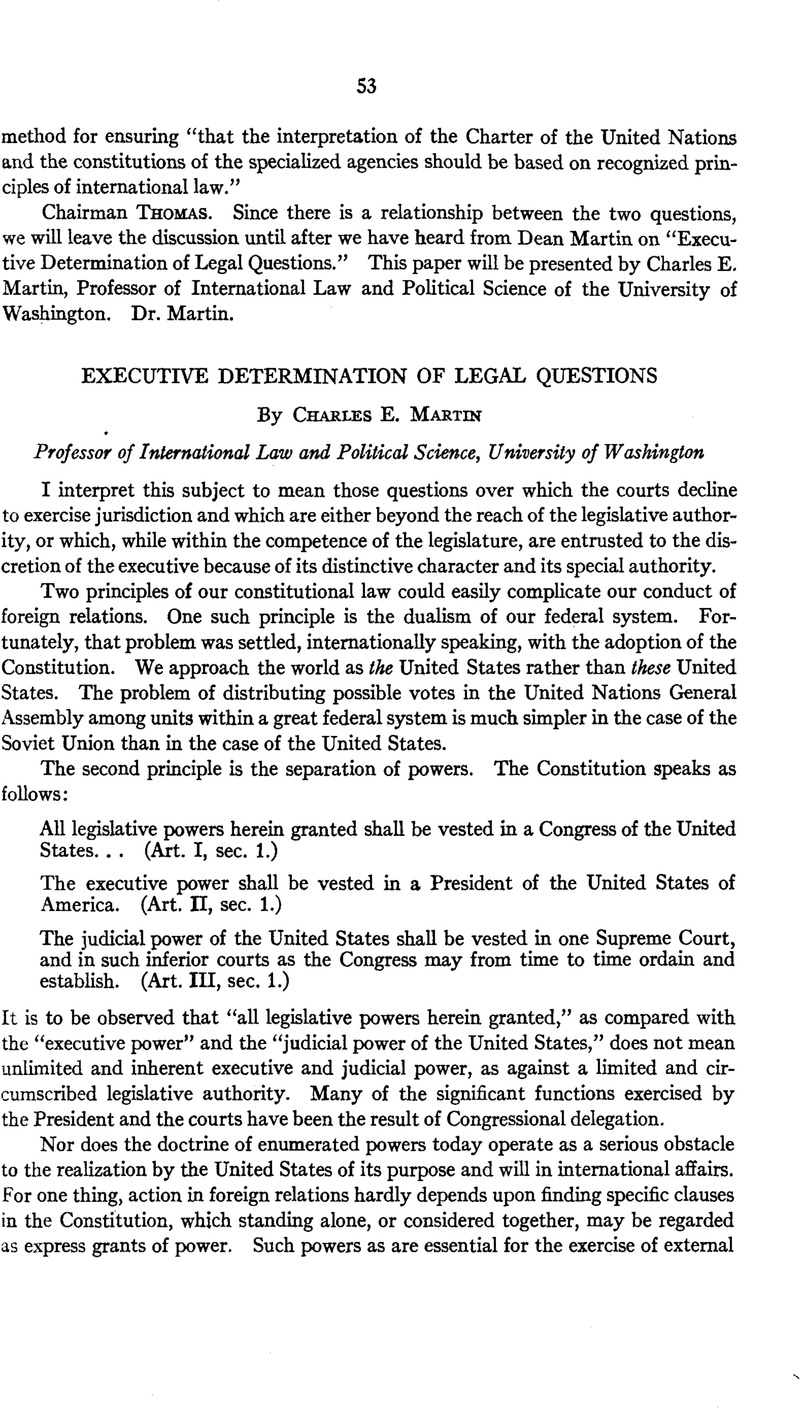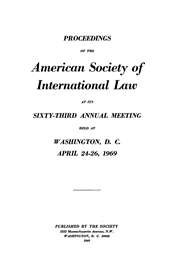No CrossRef data available.
Article contents
Executive Determination of Legal Questions
Published online by Cambridge University Press: 28 February 2017
Abstract

- Type
- Third Session
- Information
- Copyright
- Copyright © American Society of International Law 1948
References
1 Missouri v. Holland, 252 U. S. 416, 432-434.Google Scholar
2 U. S. t. Curtiss-Wright Export Corporation, 299 U. S. 304.
3 Corwin , E. S. , , The Constitution and World Organization, pp. 23-24.Google Scholar
4 U. S. Constitution, Art. II, sec. 3.
5 U. S. Constitution, Art. III, sec. 2.
6 Statute, International Court of Justice, Art. 36, sec. 2a.
7 American Society of International Law, Proceedings, 1937, p. 52.
8 lbid., p. 53. ,
9 Ibid., pp. 46-47.
10 See American Society of International Law, Proceedings, 1929, pp. 194-196.
11 133 U. S. 258, 266-267.
12 American Society of International Law, Proceedings, 1937, p. 52.
13 Roosevelt, Theodore, Autobiography, pp. 551-552.
14 301 U. S. 324.
15 Corwin , E. S., The Constitution and World Organization, p. 42.Google Scholar
16 McClure, W. M., International Executive Agreements, p. 344.
17 American Society of International Law, Proceedings, 1937, p. 49.
18 Ibid., p. 50.
19 Ibid., pp. 50-51.
20 143 U. S. 649.
21 299 U. S. 304, 317-318.
22 Ibid., 317-318.
23 290 U. S. 398, 426.
24 Richardson, Messages and Papers of the Presidents, IV, pp. 442-443.
25 12 Wallace 700.
26 Ibid., 702.
27 2 Peters 253.
28 Ibid., 307.
29 Ibid., 308.
30 299 U. S. 304 (1936).
31 Ibid., 312.
32 Ibid., 307.
33 Ibid., 320.
34 American Journal of International Law, Vol. 41, No. 3 (July, 1947), pp. 680-689.
35 2 Black 635 (1862).
36 American Journal of International Law, Vol. 41 (1947), pp. 684-685.
37 Ibid., p. 688.
38 Ibid., p. 684.
39 68 S. Ct. 431 (1948), 333 U. S. 103.
40 Mr. Justice Douglas, with Mr. Justice Black, Mr. Justice Reed, and Mr. Justice Rutledge, dissented. Although agreeing that the decisions of the President are not subject to review in foreign or military matters, the dissenting Justices argued that the Constitution grants Congress control over interstate and foreign commerce and that the action of the Board, authorized by Congress, not disapproved by the President, is subject to judicial review. This is necessary in order to protect the President as weE as the litigants and the public interests against an invalid Board order. The dissenting Justices asserted that Congress had sought to preserve the integrity of the administrative process by making judicial review a check on Board action.


